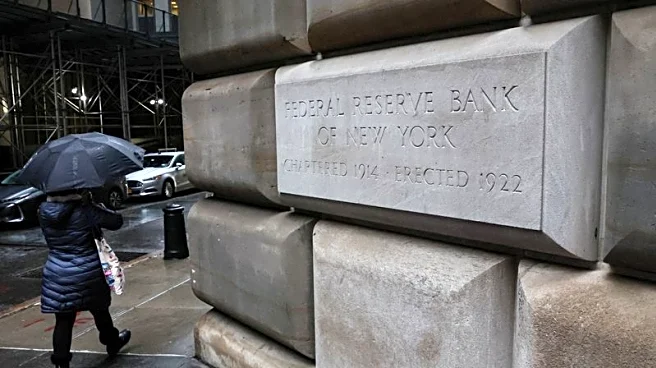What's Happening?
GRS Roadstone, a construction materials firm based in Nuneaton, has reported a significant drop in pre-tax profit for the year ending January 31, 2025. The company's profit before tax fell to £3 million, down from £9.2 million in the previous period,
despite a slight increase in turnover by 0.5% to £478.9 million. The firm attributed the profit decline to several factors, including the closure of its recycling plant at the Port of Tilbury due to shipping inflation following the UK's exit from the EU. This closure resulted in a one-off cost of £5.5 million, although it is expected to improve profitability and cash flow by up to £3 million annually. Additionally, GRS Roadstone increased its sales and administration workforce by 130 people, leading to a 10% rise in staff costs to £39.6 million. The company also disposed of its Rail Freight Services joint venture, generating £7 million in proceeds, with £2 million deferred over the next two years.
Why It's Important?
The financial performance of GRS Roadstone highlights the broader challenges faced by the construction industry in the UK, particularly in the wake of Brexit and ongoing inflationary pressures. The firm's strategic decisions, such as closing unviable operations and disposing of non-core assets, reflect a shift towards improving long-term profitability and cash flow. These actions are crucial for maintaining competitiveness in a market affected by volume weakness in new-build housing and domestic repairs. The increase in staff costs and strategic adjustments indicate a focus on strengthening operational capabilities to navigate economic uncertainties. The company's emphasis on circularity and low carbon initiatives positions it to benefit from future market recoveries, aligning with industry trends towards sustainability.
What's Next?
GRS Roadstone is expected to continue implementing cost-saving measures across its operations, including closing additional sites and reducing fleet size to manage operating costs effectively. The opening of a new office in Stockton-on-Tees suggests an expansion strategy to serve customers in Northern England and Scotland. As the firm focuses on circularity and low carbon initiatives, it may seek further investments to enhance its competitive advantage in the construction materials sector. The company's strategic adjustments and market positioning will be critical in determining its ability to capitalize on potential market recoveries and address ongoing economic challenges.
Beyond the Headlines
The closure of the recycling plant and the disposal of the Rail Freight Services joint venture underscore the impact of geopolitical events, such as Brexit, on business operations. These decisions reflect the need for companies to adapt to changing economic landscapes and regulatory environments. The emphasis on circularity and low carbon initiatives highlights the growing importance of sustainability in the construction industry, which could lead to long-term shifts in business practices and consumer expectations. As GRS Roadstone navigates these challenges, its strategic focus on sustainability may serve as a model for other firms seeking to balance profitability with environmental responsibility.


















